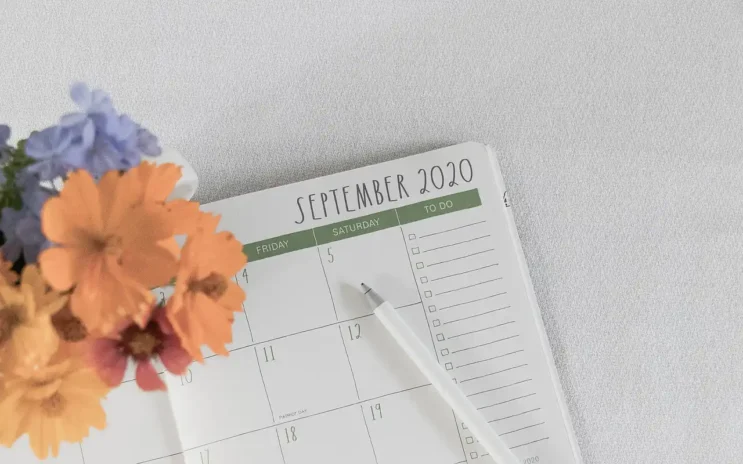Do you want your days to feel smoother and more productive? Life can get busy, but small habits can create big changes. You can make every day more fulfilling by tweaking a few parts of your routine. Here are 10 habits to help you transform your daily life.
1. Wake Up Early
The early hours are calm. They let you start your day without rushing. Waking up early gives you extra time for yourself. You can sip coffee, meditate, or just enjoy the quiet. Set your alarm a little earlier than usual. Over time, this simple step can make your mornings more peaceful and productive.
Waking up early has many benefits. It gives you more time to start your day peacefully. You can plan your tasks and feel organized. Early mornings are quiet and calm, which helps you focus better.
It is also good for your health. You can exercise, meditate, or have a healthy breakfast. This boosts your energy for the rest of the day. Studies suggest that people who wake up early are often more productive and positive.
Getting up early also helps you sleep better at night. It sets a regular routine for your body. This routine improves your mood and mental health.
2. Make Your Bed
This might seem small, but it matters. Making your bed sets a tone of order. It’s a quick win first thing in the morning. It tells your brain that you’ve already completed one task. Plus, coming back to a tidy bed feels great at the end of a long day.
It sets a positive tone for the day. Accomplishing a small task like this first thing in the morning gives you a sense of achievement. A tidy bed makes your room look neat and organized. It reduces stress and helps create a peaceful environment.
A bed can motivate you to stay organized in other areas of life. Small habits lead to bigger achievements. Returning to a neatly made bed at night feels comforting. It promotes better sleep. This simple act can impact your mindset and improve your daily life.
3. Plan Your Day
Write down your goals. A to-do list keeps you focused. You don’t have to fill every hour, but highlight what’s important. Planning makes your day organized and gives direction. You can avoid the feeling of wasting time or forgetting tasks.
Planning your day is important because it helps you manage time better. It gives structure to your day and makes it easier to achieve your goals. Here are some key benefits:
- Clear Priorities: You know what tasks to do first, focusing on what matters most.
- Reduces Stress: A plan removes confusion and helps you feel in control.
- Increases Productivity: You can complete tasks faster by staying organized.
- Improves Balance: It helps make time for work, rest, and personal activities.
- Prevents Wasting Time: A plan ensures every minute is used wisely.
Taking a few minutes each morning or evening to organize your day can bring long-term success.
4. Drink Water First
Hydration is key. After sleeping, your body needs water. Start your day with a glass of water before coffee or tea. It wakes you up naturally. This small habit boosts energy and keeps you healthier over time.
Drinking water first thing in the morning is beneficial for your health. Here are some key reasons:
- Hydration: Your body becomes dehydrated during sleep. Water helps to restore the balance.
- Boosts Metabolism: Drinking water early can improve digestion and speed up metabolism.
- Flushes Toxins: Water helps remove waste and toxins from your body.
- Improves Skin Health: It keeps your skin hydrated, making it glow and reducing dryness.
- Energizes You: Drinking water gives your body a fresh start and boosts energy levels.
Make it a habit for better health!
5. Move Your Body
Exercise doesn’t mean hitting the gym for hours. Stretch, take a walk, or dance. Moving your body reduces stress and increases focus. Even 10 minutes can do wonders. Regular movement adds more energy to your day.

Moving your body is important for both physical and mental health. Regular movement helps strengthen muscles, improve flexibility, and boost energy levels. It also supports heart health and can prevent chronic diseases like diabetes and obesity.
Physical activity releases endorphins, which are chemicals in the brain that help improve mood and reduce stress. Exercising can also improve sleep quality and increase concentration. Whether it’s dancing, walking, or sports, moving your body helps you stay healthy, feel good, and stay active in your daily life.
6. Eat a Balanced Breakfast
Fuel your body with something nutritious. A balanced breakfast can include fruit, eggs, or oatmeal. Avoid skipping this meal—it powers your mind and body. When you start your day with good food, you feel better all day long.

Eating a balanced breakfast is important because it provides the body with the energy it needs to start the day. A good breakfast helps improve focus and concentration, making it easier to perform tasks at school or work. It also kickstarts the metabolism, which can help maintain a healthy weight.
Including protein, whole grains, and fruits or vegetables in the morning meal gives the body the nutrients it needs to stay healthy. Skipping breakfast can lead to tiredness, irritability, and overeating later in the day, making it harder to stay energized and productive.
7. Take Breaks
Don’t push through hours of work without stopping. Short breaks keep you fresh and sharp. Walk away from your desk or look outside for a minute. Resting your mind helps you focus better when you return to tasks.
Taking breaks is important for both mental and physical well-being. When we work or study for long periods without stopping, we can become tired and lose focus. Short breaks help refresh the mind, improve concentration, and reduce stress. Taking a moment to step away from a task allows the brain to rest and process information, making it easier to return to work with new energy.
Breaks can also help prevent burnout and improve overall productivity. Regularly taking time to relax, stretch, or enjoy a moment of calm is essential for maintaining balance and staying healthy.
8. Practice Gratitude
Pause to think of three things you’re thankful for. Gratitude shifts your mindset to positivity. It’s easy to focus on problems, but this habit reminds you of the good things. You can write them down or just say them in your head.
Practicing gratitude is important because it helps improve mental and emotional well-being. When we focus on the positive aspects of life, it can boost our mood and reduce stress. Gratitude encourages us to appreciate the small things, which can make us feel more content and connected to others. It also helps us build resilience, making it easier to cope with challenges.
Regularly practicing gratitude can create a habit of looking at the world with a more positive outlook, leading to stronger relationships and a more fulfilling life.
9. Limit Screen Time
Technology is useful, but it’s also draining. Set boundaries with your devices. Avoid scrolling before bed or during meals. Cutting down screen time gives your eyes and mind a break. Use this time for hobbies or connecting with loved ones.
Limiting screen time is important for maintaining both physical and mental health. Too much screen time can lead to eye strain, poor posture, and disrupted sleep patterns. It also reduces the time spent on physical activities, which can lead to weight gain and related health issues.
Additionally, excessive screen time, especially on social media, can negatively impact mental well-being by causing feelings of isolation or anxiety. By limiting screen time, individuals can improve their focus, engage more in face-to-face interactions, and prioritize healthier activities, ultimately leading to a more balanced and fulfilling lifestyle.
10. Reflect Before Sleeping
At the end of the day, take five minutes to reflect. Think about what went well. Consider what could be better tomorrow. This helps you unwind and prepare for the next day. Reflecting keeps you mindful of your growth.
Reflecting before sleeping is important for mental well-being. It allows individuals to process their day, understand their emotions, and clear their mind. Taking a moment to think about the events of the day can help resolve any lingering thoughts or stress.
This practice can lead to a more peaceful sleep, as the mind is not overloaded with unresolved issues. It also helps to set intentions for the next day, providing a sense of control and focus. Reflecting before bed can improve both emotional health and sleep quality.
Turning Habits into Lifestyle
Start small. Don’t try to do everything at once. Pick one or two habits and stick with them. Gradually add more when you’re ready. Simple habits lead to a daily routine that works for you. With consistency, you’ll see a difference in how you feel and function.
 Life With Mamun
Life With Mamun